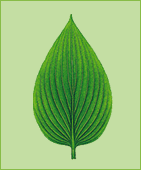Requirements vary from country to country, and generally involve a set of production standards for growing, storage, processing, packaging and shipping that include:
- Avoiding fertilizer, pesticides, antibiotics, food additives, genetically modified organisms, irradiation, and the use of sewage sludge.
- Using of farmland that has been free from chemicals for at least 3 years or more.
- Keeping detailed written production and sales records (audit trail.
- Making sure to separate organic production from non-certified organic production.
- Undergoing periodic on-site inspections.
 In some countries, organic standards are formulated and overseen by the government. The United States, the European Union and Japan have comprehensive organic legislation, and the term "organic" may be used only by certified producers.
In some countries, organic standards are formulated and overseen by the government. The United States, the European Union and Japan have comprehensive organic legislation, and the term "organic" may be used only by certified producers.
Certification is intended to protect consumers from misuse of the term, and make buying organics easy. However, the organic labeling made possible by certification itself usually requires explanation. In countries without organic laws, government guidelines may or may not exist, while certification is handled by non-profit organizations and private companies.
Internationally, equivalency negotiations are underway, and some agreements are already in place, to harmonize certification between countries, facilitating international trade. There are also international certification bodies, including members of the International Federation of Organic Agriculture Movements (IFOAM), the Organic Crop Improvement Association (OCIA), and Ecocert. Where formal agreements do not exist between countries, organic product for export is often certified by agencies from the importing countries, who may establish permanent foreign offices for this purpose.
In the US, federal organic legislation defines three levels of organics. Products made entirely with certified organic ingredients and methods can be labeled "100% organic". Products with at least 95% organic ingredients can use the word "organic". Both of these categories may also display the USDA organic seal. A third category, containing a minimum of 70% organic ingredients, can be labeled "made with organic ingredients".





No comments:
Post a Comment